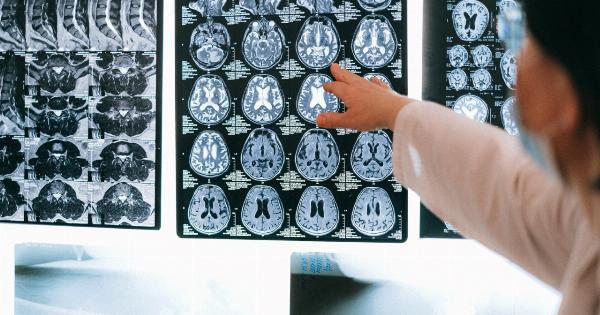Hand tremors are involuntary rhythmic movements of the hands that can affect people of all ages. While Parkinson’s disease is often associated with hand tremors, it is important to recognize that there are several other causes of this condition.
Understanding the diverse range of factors contributing to hand tremors is crucial for accurate diagnosis and appropriate treatment. In this article, we will explore various causes of hand tremors beyond Parkinson’s disease.
Essential Tremor
Essential tremor is the most common cause of hand tremors and it affects millions of people worldwide. This neurological disorder typically runs in families and usually begins gradually, worsening over time.
Essential tremor is often characterized by rhythmic shaking of the hands, but can also affect the head, voice, and other body parts. Unlike Parkinson’s disease, essential tremor is typically not associated with other movement abnormalities or cognitive issues.
Dystonia
Dystonia is a neurological movement disorder that can cause involuntary muscle contractions, resulting in repetitive movements or abnormal postures.
Hand tremors can occur as a manifestation of dystonia, leading to involuntary twisting or shaking of the hands. Dystonic tremors can be task-specific, meaning they are triggered only during certain activities, such as writing or eating.
Cerebellar Tremor
Tremors caused by dysfunction in the cerebellum, a part of the brain responsible for motor coordination, are known as cerebellar tremors.
These tremors are typically characterized by a coarse, low-frequency tremor that affects various body parts, including the hands. Cerebellar tremors may be caused by conditions such as multiple sclerosis, stroke, or tumors affecting the cerebellum.
Psychogenic Tremor
Psychogenic tremor is a tremor that is not caused by any underlying neurological or medical condition but instead by psychological factors.
These tremors are often associated with emotional distress or psychiatric disorders such as anxiety or conversion disorder. The tremors may vary in severity and can involve different parts of the body, including the hands.
Medication-Induced Tremor
Some medications, particularly those used to treat psychiatric conditions or certain respiratory disorders, can cause hand tremors as a side effect.
Medication-induced tremors can occur in individuals of any age and often improve or resolve once the medication is adjusted or discontinued. It is important to consult with a healthcare professional if you suspect your hand tremors are a result of medication.
Hyperthyroidism
Hyperthyroidism, a condition characterized by an overactive thyroid gland, can cause a range of symptoms including hand tremors. The excessive production of thyroid hormones can have a stimulating effect on the nervous system, leading to tremors.
Treating the underlying thyroid condition often resolves the tremors.
Wilson’s Disease
Wilson’s disease is a rare inherited disorder that causes excessive copper accumulation in various organs, including the brain. This build-up of copper can lead to neurological symptoms such as hand tremors, as well as liver problems.
Wilson’s disease is often diagnosed in individuals under the age of 40 and requires lifelong management.
Drug or Alcohol Withdrawal
Withdrawal from certain substances, such as alcohol or benzodiazepines, can cause hand tremors as a temporary symptom. These tremors typically develop within a few hours of substance cessation and may worsen over the next 24-48 hours.
They usually resolve within a few days to a few weeks as the body adjusts to the absence of the substance.
Toxic Exposure
Exposure to certain toxins, such as heavy metals or industrial chemicals, can lead to hand tremors. For example, long-term exposure to lead or mercury can cause neurological damage and result in tremors.
Identifying and avoiding the source of the toxin is crucial for managing and preventing further progression of the tremors.
Normal Tremor
Finally, it is important to note that not all hand tremors indicate an underlying medical condition. Many individuals experience a slight physiological tremor, particularly during periods of stress or anxiety.
This type of tremor is usually benign and does not require medical intervention unless it significantly impacts daily activities.






























